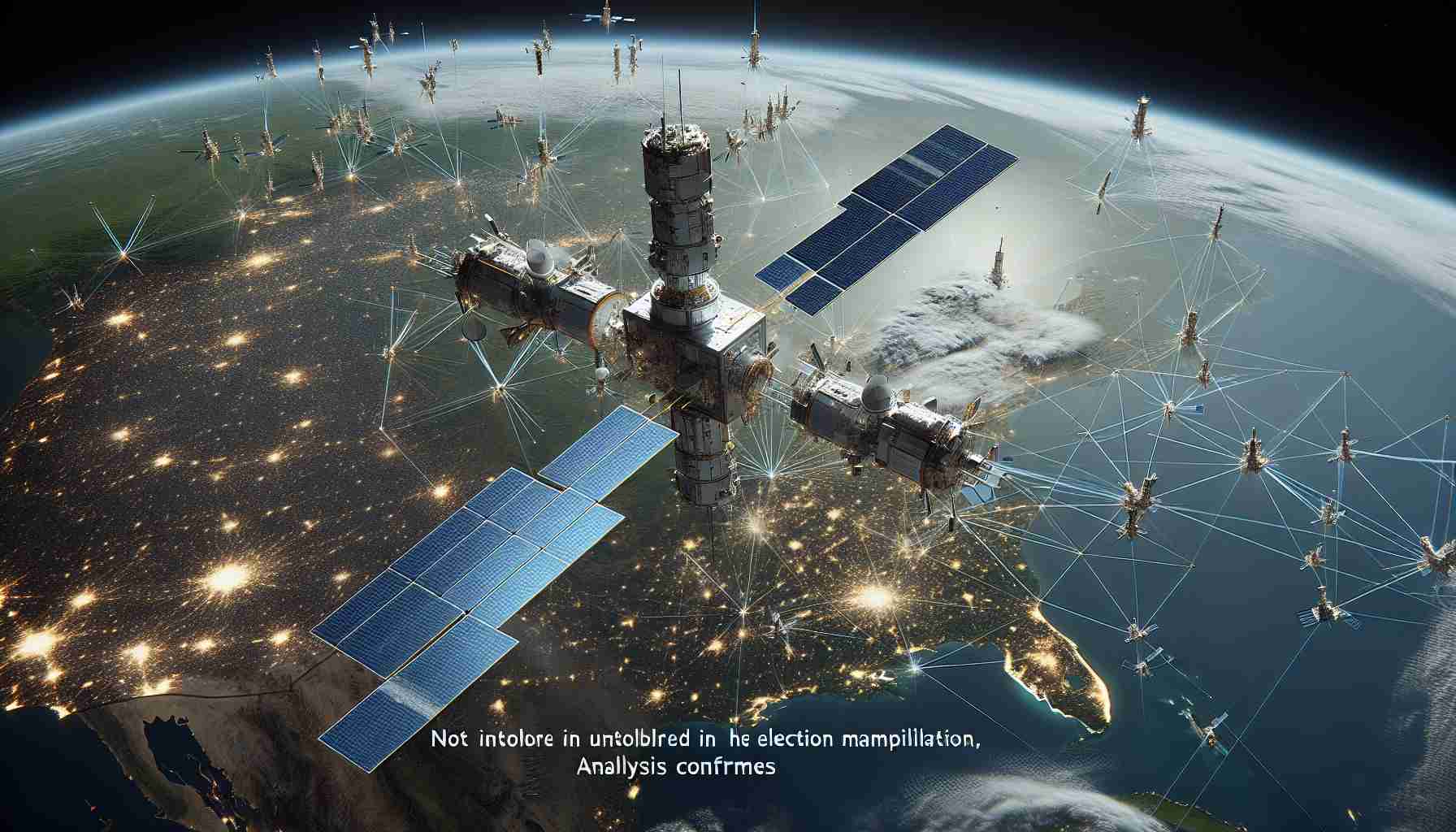
Recent findings have put to rest a conspiracy theory suggesting that Elon Musk’s Starlink satellite internet service was utilized to sway the outcome of the 2024 election in favor of Donald Trump. An investigation conducted by NewsGuard has shown that there is no substantiated evidence supporting claims that Starlink played a role in voter manipulation during the recent election.
The analysis was prompted by a wave of misleading statements and speculation circulating on various social media platforms, alleging instances of voter fraud linked to the advanced satellite technology. Starlink, which operates as a satellite internet provider aimed at enhancing global connectivity, is owned by Musk, who is known for his outspoken support of the current president-elect.
Media scrutiny and independent assessments have underscored the importance of verifying information before circulating potentially harmful narratives. In the current climate of misinformation, this independent review acts as a crucial reminder about the significance of reliable sources and rigorous fact-checking in maintaining the integrity of electoral processes.
With the conclusion of this analysis, it appears that such rumors were unfounded, reinforcing the belief that technology, including satellite internet, remained a neutral entity during the election. The focus now shifts towards ensuring transparency and accountability in future electoral practices.
Starlink, the satellite internet service created by Elon Musk’s SpaceX, has recently been cleared of allegations suggesting its involvement in election manipulation during the 2024 elections. This analysis runs deeper than the mere denial of a conspiracy; it reveals broader implications regarding technology’s role in democracy and communication.
Key Questions and Answers:
1. What led to the accusations against Starlink?
The accusations stemmed from misleading narratives circulating on social media, where users speculated about the potential for voter manipulation through advanced technologies like Starlink’s satellite internet capabilities.
2. How was the investigation conducted?
The investigation was spearheaded by NewsGuard, which employed a comprehensive approach, analyzing data and communications related to Starlink usage during the elections, and comparing them against verified election outcomes.
3. What were the findings?
The findings confirmed that there were no incidences of voter fraud or manipulation linked to Starlink. The analysis emphasized that the evidence supporting the conspiracy was circumstantial at best.
Key Challenges and Controversies:
Though the investigation cleared Starlink, several challenges remain significant in the intersection of technology and electoral integrity. These include:
– Misinformation: Social media platforms continue to struggle with the spread of false information, which can unjustly affect public perception and trust in technology providers.
– Regulatory Oversight: As technology becomes an increasingly vital part of electoral processes, calls for clear regulations governing the use of such technologies during elections are growing.
Advantages and Disadvantages of Satellite Technology in Elections:
Advantages:
– Increased Connectivity: Satellite technologies like Starlink can provide internet access in remote areas, ensuring that more people can participate in democratic processes.
– Real-Time Information: With fast and reliable internet access, citizens can receive timely updates about elections and candidate policies, which fosters informed decision-making.
Disadvantages:
– Vulnerability to Manipulation: Although recent findings exonerated Starlink, the potential for future misuse of such technologies to disseminate misinformation cannot be overlooked.
– Dependence on Technology: With increasing reliance on satellite internet, there is a risk that disruptions or outages could impede access to crucial electoral information.
Looking Ahead:
While the investigation into Starlink’s purported involvement in election manipulation has concluded, ongoing vigilance is necessary. The emphasis now lies on creating robust frameworks to safeguard electoral integrity in a digital age. As technology evolves, so must our approaches to ensuring that it enhances, rather than undermines, democratic processes.
For further information about the integrity of the electoral process and initiatives to combat misinformation, you can visit USA.gov or FCC.gov.



